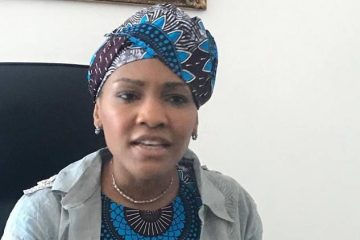The National Association of Nigeria Nurses and Midwives has called on the Federal Government to shift focus from expanding nursing education to addressing the systemic issues driving the mass emigration of nurses, popularly known as the Japa syndrome.
The association expressed concern over persistent challenges, noting that as of February 2025, nearly 15,500 nurses had left the country in the previous year.
It emphasised that increasing nursing student intake without employment plans and structural reforms may worsen the problem.
The union highlighted several structural issues that need government attention, including the creation of a conducive working environment, equipping health facilities, improving welfare through better remuneration, implementing the Scheme of Service, and centralising nurse internships, among others.
Speaking on Thursday at the National Executive Council meeting of the association, in Abuja, the President, Haruna Mamman, highlighted the deteriorating shortage of manpower in the sector, calling for the need to engage national and sub-national governments and stakeholders to boost employment and morale among nurses.
Raising concerns over the persistence of quackery in healthcare, he implored State Nursing and Midwifery Councils to be reactivated and empowered in collaboration with stakeholders.
In response to the Federal government’s measures to curb the mass migration of health professionals, such as increased student admissions in tertiary institutions, the establishment of centres of excellence, and the upgrading of Primary Health Centres, NANNM General Secretary Thomas Shettima said simply increasing the production of health personnel is not the solution.
“When people are trained but not employed, they remain in society with medical knowledge, often forced to practice unofficially to survive. This poses a danger to public health,” he said.
Shettima attributed the ongoing exodus to poor working conditions, unreviewed allowances, and an overall lack of investment in the profession.
“Many of our allowances haven’t been reviewed in over 30 years. Professionals leave not out of choice, but necessity,” he said.
Rather than establishing more nursing schools, NANNM urged government engagement with relevant professional bodies to address core issues.
“Opening 1,000 schools of nursing in every state won’t stop the exodus. Improving the healthcare system and working conditions will,” he said.
According to him, the continued delay in implementing the nurses’ Scheme of Service that was approved by the National Council of Establishment since 2016 remains a deeply contentious and unresolved issue.
“It’s one of the key issues we are actively discussing with the Minister of Health and the Head of Civil Service,” Shetima added.
The association stressed the need to urgently address upward review and payment of professional core allowances, address the non-implementation of an industrial court judgment and the centralization of internship placements for newly graduated nurses.
The association also cautioned that the unchecked expansion of nursing schools could undermine training quality and professional standards.
Samuel Adeyemi, Chairman of the Oyo State Council of NANNM, emphasized that persistent inequality and injustice within the health sector continue to erode morale, serving as a major driving force behind the growing emigration of nurses seeking better working conditions abroad.
He noted that among all health professionals, nurses remain the only group without a distinct salary structure, with many critical allowances either denied or grossly inadequate.
He added that the issue of the retirement age for nurses also appears to receive little attention from the government.
“As nurses, we have been battered for too long. We care for lives even when the government fails us. Our shift duty allowance has remained unchanged for 40 years.
“We get 1.7% of our basic salary for call duty, while pharmacists get 2% and doctors 4%. That inequality is glaring.”
Adekunle, a fellow of Data and Solutions Journalism, has over four years experience with competences in data journalism and investigations.



